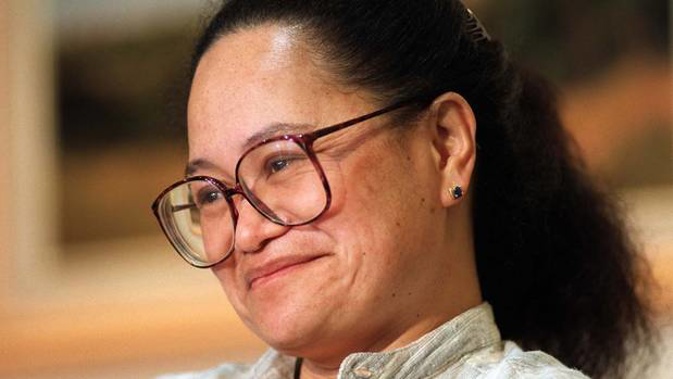
Kiwi nurse Louisa Akavi has described how she returned again and again to conflict zones because she was "restless as".
Akavi, 62, was today revealed to have been an Islamic State hostage for the last five and half years. Her captivity was kept quiet as part of an agreement between media and the NZ Government for her safety, but that has now ended because the Red Cross are appealing for information about her.
It is not known where she is or if she is alive. The last credible sighting of her was in one of the last Islamic State strongholds in eastern Syria in December.
Speaking to Victoria University nursing student Jill Caughley for a 2001 masters thesis, the Cook Islands New Zealander detailed her extraordinary early years as a Red Cross aid worker.
She began her career as a staff nurse in Wellington hospital in 1977 before shifting to Rotorua to work in the accident and emergency department where she treated major injuries from forestry accidents - and tourists who had been burned at the hot pools.
Her first overseas mission with the Red Cross was in 1988 in Bidong, Malaysia, where 10,000 people had fled from Vietnam. She ran a 40-bed hospital and delivered 100 babies in her 10 months on the island. She also got her first experience of tragedy, airlifting out a colleague who had killed themselves.
In the following years, she returned to Wellington several times but was pulled back to conflict zones by her ambition and restlessness. In the early 1990s, she said she decided to give up theatre work in the capital and head to Bosnia because she was "restless as".
Akavi also detailed some brushes with death in her interview with Caughley. In Somalia in the early 1990s, she was providing supplies to a hospital when the top floor was hit by a rocket.
"We had to find somewhere safe and just stay down. There was glass and bullets everywhere."
Her Red Cross bosses had to negotiate with American troops to get her car out of the compound. They were escorted out of the hospital by a helicopter gunship. It was the first conflict which Red Cross had to use armed escorts.
In Chechyna, she once expected to be killed by a family who was furious at her attempts to remove their paraplegic relative from the hospital. It was a place where "domestic violence with a gun was pretty normal", she said.
She later survived an attack on the Red Cross Hospital in Chechyna by insurgents who killed six people, including New Zealander Sheryl Thayer.
In all, Akavi has completed 17 missions for the Red Cross, many in the world's most troubled spots.
She was awarded the Florence Nightingale medal in 1999 - the highest honour for nurses. Her parents were thrilled by the award and to meet the Governor General, she told Caughley .
"Both my parents were extremely happy. For me that was wonderful. That medal gave my parents one of the best days of their lives. So I thought, this medal I am happy to get just for that."
Take your Radio, Podcasts and Music with you









